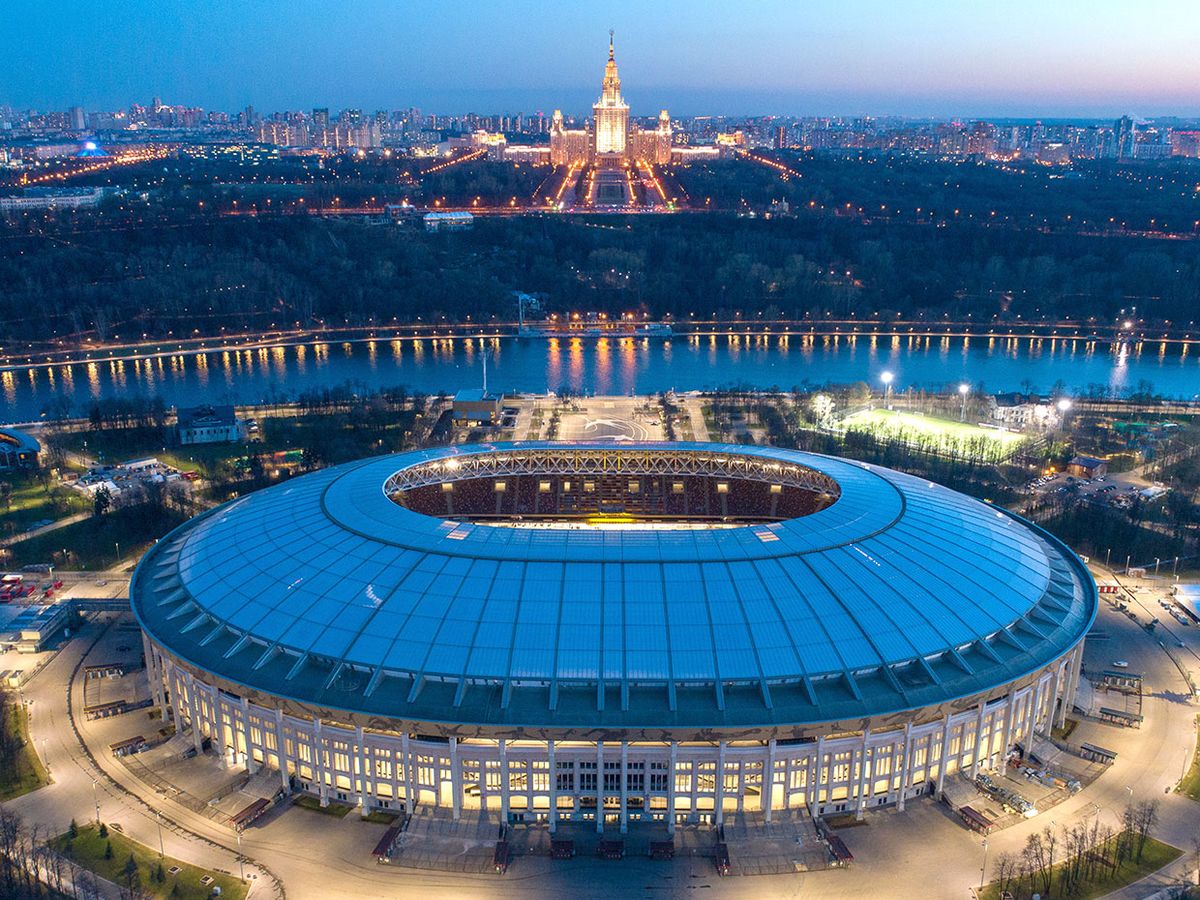When the national football teams of Morocco and Iran take the field at Krestovsky Stadium in Saint Petersburg during the 2018 FIFA World Cup on 15 June, more than 60,000 fans will be there to cheer them on. And, courtesy of more than a dozen specially installed high-definition cameras, residents of Moscow, about 600 kilometers away, will watch the game over a high-speed 5G connection.
The capital of Russia will have what Evgeniy Novikov, an advisor for the Deputy Minister of the IT Department of Moscow, calls a “5G zone,” an area where viewers can don VR glasses and switch between camera views to watch the game in real time.
Like previous bombastic 5G demonstrations, including Verizon’s livestream of the Super Bowl in Minneapolis last February, and multiple virtual reality demonstrations by South Korean telecom companies during the Winter Olympics in Pyeongchang, Moscow’s stunt will showcase the unparalleled video streaming capabilities of the next wireless generation.
But for Moscow, the World Cup demonstrations are just the first in a series of ambitious 5G tests and rollouts. The city’s government is confident in the capabilities offered by 5G, though carriers, standards groups, and federal agencies are still sorting out how exactly the technology will work.
Elsewhere, many other companies and countries are trying to answer their version of the same questions. But the spotlight of the World Cup has jumpstarted Russia’s 5G infrastructure plans and produced creative ideas for new civic products and services these future networks could deliver.
It’s not yet entirely clear which frequencies 5G will operate at within the country. “We don’t have any legal frequency for 5G,” says Novikov. The government is currently researching which frequencies it should make available. Two likely candidates are 3.5 and 28 gigahertz, since companies are currently leasing those bands for temporary demonstrations. For example, MegaFon, one of the largest telecom operators in Russia, is partnering with the city government to provide the 5G zone for the World Cup.
Despite the uncertainty, the city of Moscow is already planning new projects that will take advantage of 5G’s promise. Andrey Belozerov, an advisor to Moscow’s Chief Information Officer, says several existing programs in the city that currently run on 4G will be better served by a 5G network.
One program he points to is a system for traffic cops to file reports remotely. Filing reports in this way helps traffic cops to file more quickly, Belozerov says. But the system doesn’t yet meet expectations. “LTE does not meet requirements for transfer and stability of data,” he says, because the data rate is not high enough.

Other projects will also benefit from a stable 5G network. This includes a partnership between the city government and Yandex, Moscow’s largest taxi and car-sharing service, to remotely move the company’s cars if they are poorly parked.
What all of the city’s emerging 5G projects have in common is a mission to move forward despite the fact that they will only be able to partially function in an LTE environment. Meanwhile, international companies are thinking along the same lines—Ericsson and MTS Systems Corporation announced a joint 5G research center in the high-tech Russian test city of Innopolis.
Belozerov says it makes sense to lay the groundwork now, and that rolling projects out first on LTE will save time and money down the line. Take, for example, a fleet of cars that use cameras to check for parking violations and automatically send that information to the police. The system requires a higher data rate than an LTE network can reliably provide, but that didn’t stop the city from rolling it out. “From an investment point of view,” says Belozerov, “an automated system was better even with known data problems.”
Despite Belozerov’s optimism, much of the groundwork for 5G is still being laid. According to Novikov, there are three major tasks that must be completed before Moscow will have a fully deployed 5G network.
First is the development of pilot networks, which will be deployed next year. These pilot networks will function more like hotspots than a full network, and will prove 5G’s viability in real-world environments. Second is boosting Moscow’s infrastructure so that it can handle the power required by the increased number of base stations that 5G will rely on. That will ensure that when 5G is ready to deploy, carriers can roll it out without delay. And third, Novikov says it’s important to also start working on new applications that will take advantage of 5G’s low latency and multi-gigabit speeds.
With its myriad projects, the city of Moscow has a head start in designing new programs and services to run on future 5G networks. Still, Novikov doesn’t expect to see the first commercial 5G networks in Russia until 2022. That’s years behind frontrunners such as South Korea’s KT Corporation, which plans to launch commercial networks by 2019, and telecos in the United States that are jockeying to deliver 5G networks to select cities by the year’s end. Even so, Moscow is thinking hard about use cases now. “We cannot wait,” says Novikov. “As a city we should hurry up, hurry up, hurry up.”
Once it’s in place, Novikov says 5G’s capabilities could improve life in a number of ways, by making it easier for anyone to stream high-definition video or locate a car in a crowded parking lot: “We trust that when 5G comes, it will help.”
Michael Koziol is an associate editor at IEEE Spectrum where he covers everything telecommunications. He graduated from Seattle University with bachelor's degrees in English and physics, and earned his master's degree in science journalism from New York University.



